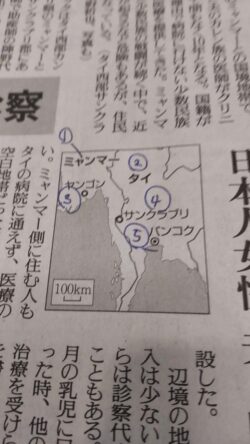Retired athletes catching Japanese firms’ eyes

Left : Athlete employees at work, Right : Athlete employees play soccer.
11:34 JST, September 5, 2022
TOKYO (Jiji Press) — Companies in Japan, struggling to secure competent workers, are looking intensely at retired athletes, expecting that their valuable experience from competing in the sporting world can be used in the business world.
Services to support former athletes with their second careers are also spreading, such as helping them find jobs and providing vocational training to them.
Mos Food Services Inc. has started a program to train retired athletes to be franchise owners of its Mos Burger fast food restaurant chain.
The move comes at a time when Mos Burger is facing the aging of existing owners 50 years after its establishment and the need to promote a generational shift among its owners to maintain its restaurant network.
Referring to a feature of former athletes, Mos Food Services President Eisuke Nakamura said, “People who have focused on one thing in their lives tend to tackle their jobs faithfully.”
Under the Mos Food Services program, former athletes learn about the basics of restaurant management and get one-the-job training in the first year after joining the company, with the eventual goal of launching their own businesses.
Major staffing agency Pasona Group Inc. in March started recruiting as contract employees not just former athletes but also active athletes who are thinking of their post-retirement careers.
The company had employed a total of 10 active athletes under the recruitment scheme as of the end of July. They include soccer and ice hockey players who are juggling work and sport, including on Awaji Island in Hyogo Prefecture, where the company is relocating its headquarters.
Job information provider Mynavi Corp. introduces potential employers after retirement to athletes, as well as hold seminars to teach them basic business skills and knowledge needed for a working adult.
“Many athletes do not know what strengths they have acquired through sporting or how they can use that advantage after retiring,” an official of the company said.
Human resources shortages have also been an issue for the management side at professional sports teams. It is not uncommon for team staff members to do several jobs.
“We’re just too busy to train young staff,” an official at a team in the Japan Professional Football League, or J.League, grumbled.
In response to the situation within the sports world, ticketing agency Pia Corp. last year launched a course in which participants pay to learn about sports business.
Of the 22 first course participants who have learned about ticket sales management and stadium operations, seven have found jobs with rugby and other sports teams.
"Society" POPULAR ARTICLE
JN ACCESS RANKING







